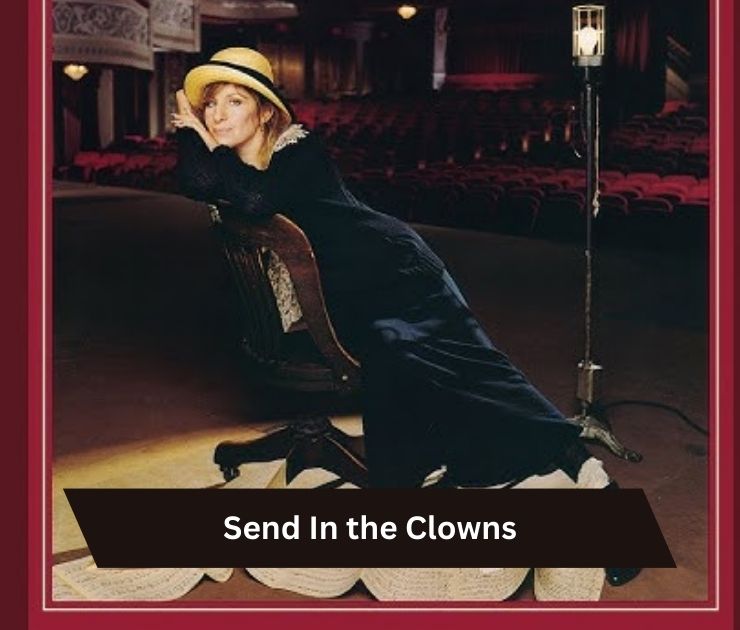Send in the Clowns has become a cultural touchstone, evoking a spectrum of emotions from joy to melancholy. This iconic song, originally penned by Stephen Sondheim for the musical “A Little Night Music,” has transcended its theatrical roots to resonate in various forms of art and music.
In this article, we will explore how “Send In the Clowns” emerged as a poignant reflection on love and regret, and why it continues to captivate audiences today.
You can also read: If You Dont Know Me by Now
Introduction Of Judy Collins Send In The Clowns
The introduction of Judy Collins’ rendition of Send in the Clowns marks a poignant moment in musical history, originating from Stephen Sondheim’s 1973 Broadway masterpiece, A Little Night Music.
This hauntingly beautiful song is sung by the character Desirée in Act Two, as she grapples with the bittersweet reality of love lost and the painful irony of timing. Its roots trace back to Ingmar Bergman’s film Smiles of a Summer Night, which explores similar themes of romance and regret.
Judy Collins Send In The Clowns Lyrics
“Isn’t it rich, are we a pair?
Me here at last on the ground
You in mid-air
Send in the clowns
Isn’t it bliss, don’t you approve?
One who keeps tearing around
One who can’t move
Where are the clowns?
Send in the clowns
Just when I stopped opening doors
Finally, knowing the one that I wanted was yours
Making my entrance again with my usual flair
[Making my entrance, I’m sure of my lines
I see through the curtain that no one is there.
Don’t you love farce? My fault, I fear
I thought that you’d want what I want
Sorry, my dear, but where are the clowns?
Quic,k send in the clowns, don’t bother, they’re here
What a surprise, who could foresee?
I’ve come to feel about you [how] you felt about me
Why only now, when you’ve drifted away
Isn’t it rich, isn’t it queer?
Losing my timing this late in my career
And where are the clowns?
There ought to be clowns
Well, maybe next year.”
Send In The Clowns Meaning
It evokes a vivid image of a theatrical performance spiraling out of control, calling for comedic relief amid chaos. This phrase transcends its literal context, symbolizing moments in life where distractions are needed to lighten the mood or redirect attention from discomforting situations.
In many ways, it reflects our innate desire to find humor in adversity, suggesting that even when things go awry, laughter can serve as a balm for our troubles.
Conclusion
Send In the Clowns remains a poignant exploration of lost love and regret, resonating with listeners across generations. Its haunting melody, combined with the lyrical depth, captures the essence of vulnerability and introspection that many can relate to.
The song’s ability to evoke strong emotions is a testament to Stephen Sondheim’s masterful songwriting. As we reflect on our own experiences of love and loss, it becomes clear why this piece has endured in popularity.











